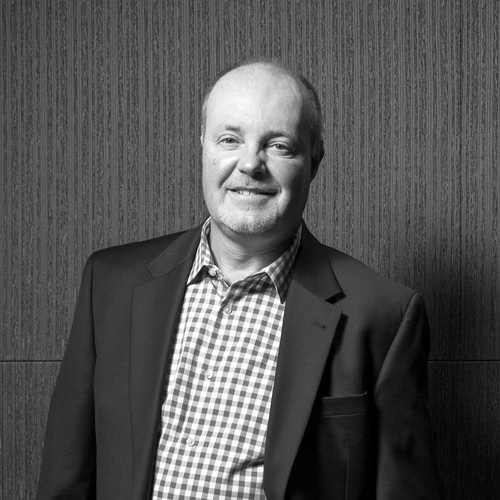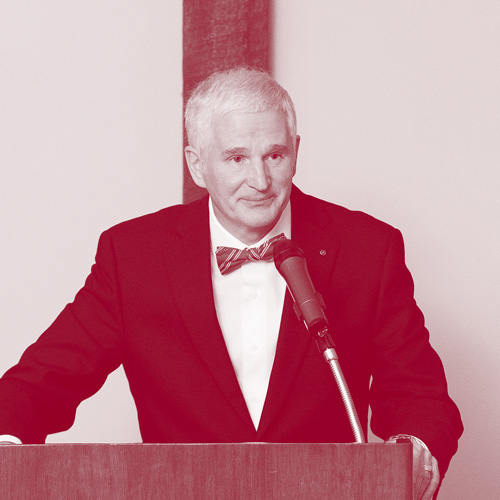Steve Wilder has a hard time taking credit for just about anything. As chief financial officer, chief information officer, and senior vice president with more than thirty-five years of experience at Tamarac, Florida-based City Furniture, it seems like bragging rights would be easy to come by. Despite being part of a small fraternity of waterbed-salesmen-turned-retail-furniture powerhouses, Wilder manages to dole out credit to just about anyone other than himself when recounting how he’s managed to help the company’s revenue grow to more than $340 million from $10 million. “I’m still, and will continue to be, a work in progress,” Wilder says. That’s about the extent of his bragging.
After overseeing the company’s audit in 1981 as an outside CPA, Wilder joined City Furniture (formerly Waterbed City) as comptroller. City Furniture cofounder Keith Koenig saw value in Wilder’s abilities, while Wilder saw the culture and entrepreneurial spirit that the company’s founders, Keith and Kevin Koenig, had built into the company. “When given the opportunity, I had to jump on it,” Wilder says.
City Furniture’s culture is a theme Wilder talks about often. He sees himself as committed to a company that is incredibly devoted to not only its customers, but also the 1,300 to 1,400 families of City Furniture employees, whom Wilder says are carefully considered every time the company makes a decision.
City Furniture developed an early partnership with IBM—a relationship that continues to this day—so during the burgeoning tech revolution of the 1980s, Wilder saw the company make technological strides that were ahead of the game. That experience served Wilder well when he assumed the role as CIO. “I was close enough to watch those homegrown applications develop and be involved,” he says. “It afforded me the opportunity to learn the business from the inside out.”
“I was afforded the opportunity to make some mistakes along the way, and I wasn’t chastised for it. I learned from my mistakes.”
Initial technical advances proved incredibly beneficial, but IT progress languished in the 2000s with stalled development that made scaling difficult amid an economic recession. Wilder, admittedly not an IT guy, was tapped to take over as CIO by CEO Keith Koenig, who told Wilder: “I’m not looking for a technical person. I want a business person.”
What Wilder didn’t have in technical expertise, he made up for with sheer willpower. “I was the person that was always asking why and questioning the systems that were being developed. I was sort of a pain in the ass to the developers, to be honest,” he says with a laugh. Although he might occasionally get bogged down in the technical details, Wilder has worked to embrace the bigger picture. “I was afforded the opportunity to make some mistakes along the way, and I wasn’t chastised for it,” he says. “I learned from my mistakes.”
Wilder’s accumulated knowledge has meant big things for City Furniture’s IT future. One of the initiatives paramount to City Furniture’s immediate future is its continued partnership with IBM and the concurrent development of three mobile applications. These applications, Wilder believes, might be revolutionary for not just furniture retail but also big box retail at large. The Digital Sale Distribution Channel for Clearance Merchandise mobile app will exponentially expedite the process of making clearance merchandise available for purchase. “You’ve gone from days or weeks before it’s even available for sale—when a customer physically walks into a showroom and sees it—to a matter of minutes,” Wilder says. “It’s revolutionary and has potential ramifications that go beyond just furniture.” Together with IBM, City Furniture has succeeded, he says, in developing a digital solution for a physical problem.
That application development will also come in handy as Wilder works to get an iPad in the hands of every City Furniture showroom employee, which will allow even new sales associates access to product and inventory information alongside returning shoppers’ preferences and wish lists—all without having to disengage and leave a customer unattended.
Wilder’s quest for a majority of associate adoption has garnered attention from several larger retail chains whose attempts have proven unsuccessful. “They haven’t had the adoption rate, and they’re excited to see what we’ll be able to do,” Wilder says. “Our associates want new technology. I think it is a game changer.”
Wilder hopes to streamline customer financing by leveraging existing and proven web services between City Furniture’s back-end system and its finance partners. “The customer can apply for a City Furniture card while seated at the dining room table they plan to purchase,” he says. City Furniture’s trusted lenders can guide customers through three rungs of potential financing in an effort to ensure customers from all walks of life get safe and secure financing. Wilder describes the ongoing app development of these three projects as one of the most important initiatives he’s encountered during his tenure at City Furniture.
So if Wilder isn’t at least a partial architect of City Furniture’s success, who is? Wilder speaks of City Furniture’s founders as his inspirational guideposts, though Kevin Koenig passed away in 2001. He also speaks glowingly of Garry Ikola, senior vice president of sales, and virtually every team member. Wilder also cites his late father as his role model and Iris, his wife of thirty-seven years, as the keys to his personal and professional success. He speaks often of empowering the future leaders at City Furniture and his commitment to “leaving my part of the company in a position for someone to do bigger and better things.”
Whether Wilder will admit it, that is a tall order.

